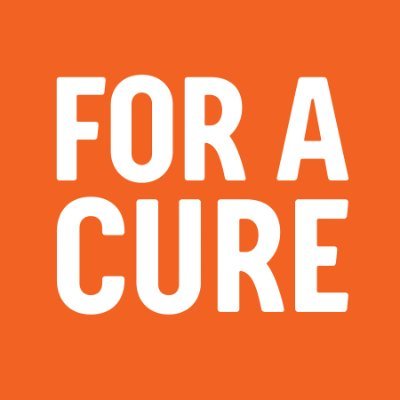
FrattaLab
@FrattaLab
Followers
981
Following
65
Media
3
Statuses
76
FrattaLab @UCLIoN working on #RNA biology of #ALS and #SBMA and #Kennedy's disease
Joined November 2019
Great perspective from Yi Zeng and Aaron Gitler. Wonderful collaborations and long journey with @ClaireLePichon and @ule_lab. And funding to start and now continue the work from UCL NgTP/@SRausingTrust @The_MRC @mndassoc @MNDoddie5 @TheCrick
0
0
6
Out @ScienceMagazine! New tech to activate ALS gene therapies only in the right cells at the right time - Increased safety to have more options for ALS. We do it by taking advantage of cryptic splicing. https://t.co/tPNurQJREV
@UCLIoN @TheCrick @OscarWilkins16 @MaxZYJChien
science.org
Loss of function of the RNA-binding protein TDP-43 (TDP-LOF) is a hallmark of amyotrophic lateral sclerosis (ALS) and other neurodegenerative disorders. Here we describe TDP-REG, which exploits the...
5
31
103
#RepeatExpansionDisorders are up to three times more common than current estimates. Underdiagnosis or reduced penetrance? by our wonderful dream team @kriski_ibanez @mattzano @chrsclrksn + Bharati Jadhav & Andy Sharp https://t.co/wyyE2cbZw2
4
35
65
We find TDP-43 loss to cause presynaptic defects, which are rescued by ASOs correcting a single cryptic exon in UNC13A. Surprising effect of just one cryptic exon and promising strategy for ALS! Matt Keuss @PeteHarley95 in great collaboration with @jbneuro
https://t.co/zEOUW0kkJb
biorxiv.org
TDP-43 loss of function induces multiple splicing changes, including a cryptic exon in the amyotrophic lateral sclerosis and fronto-temporal lobar degeneration risk gene UNC13A , leading to nonsens...
3
30
97
New postdoc opportunity to work on splicing and ALS therapeutics @TheCrick and @UCLIoN. Basic molecular work with true translational potential. 4 days still to apply. https://t.co/ylJ0Gh3xYb
0
14
23
We're looking for someone with a creative mindset and excellent modern molecular biology skills (DNA manipulation, Illumina, Nanopore etc) to join our team at @ucl and @TheCrick in the @FrattaLab developing candidate gene therapies for ALS. Apply here:
2
14
12
Why small mindedness is having big consequences @Brain1878 I live under its shadow. I suspect most of you do too. It is the great mountain of small things. The higher it gets, the bigger the shadow it casts: a malignant darkness that pervades our lives. https://t.co/tgA8uCdrtH
24
165
352
Do you love #RNA and #neuroscience? Are you looking for a #postdocposition on #ALS and gene therapy? Join @RueppLab @UKDRI @KingsIoPPN and @FrattaLab @UCLIoN for a collaborative pre-clinical project on a novel gene therapy approach for ALS. More info here:
0
36
35
This work was led by @SamBryce_Smith and a joint effort with @mariasecrier and many others. Parallel efforts from the Gitler and La Spada labs also identify the link between TDP-43 and 3'UTR changes and out now: https://t.co/uK02EbByXB
https://t.co/UJbmvbUtzf
biorxiv.org
Nuclear clearance and cytoplasmic aggregation of the RNA-binding protein TDP-43 are observed in many neurodegenerative disorders, including amyotrophic lateral sclerosis (ALS) and fronto- temporal...
0
8
28
TDP-43 loss causes mis-splicing in ALS/FTD. We now show it also induces widespread cryptic 3'UTRs. This increases RNA stability, translation and function of ELK1 and other TFs. Also provides novel targets for biomarker and therapeutics development. https://t.co/vX85W0FDeK
biorxiv.org
Nuclear depletion and cytoplasmic aggregation of the RNA-binding protein TDP-43 is the hallmark of ALS, occurring in over 97% of cases. A key consequence of TDP-43 nuclear loss is the de-repression...
0
19
58
Really excited about our latest preprint, where we uncovered a neuroprotective role for neuronal polyunsaturated fatty acids in FTD and ALS. Led by @AshlingGiblin and @AlexCammack
https://t.co/NIm2FmGZV5 1/9
4
34
101
See the full thread from brilliant first author @OscarWilkins16 Exceptional collaborators on this, including @ClaireLePichon @ule_lab @MaxZYJChien Jo Wlaschin @UCLIoN @TheCrick
New BioRxiv paper on using cryptic splicing to unlock precision gene therapy activation for ALS, FTD & other TDP-opathies! Key contributions @MaxZYJChien Josette Wlaschin +many others from @ClaireLePichon @ule_lab @FrattaLab labs and more. A thread 🧵 1/13
1
10
28
Want to deliver gene therapies broadly, but activate them only in diseased neurons? TDP-REG "hacks" TDP cryptic mis-splicing to drive expression only WHEN and WHERE needed! Less toxicity, wider therapeutic window, new options for sporadic ALS therapies. https://t.co/VWvioiXmAN
biorxiv.org
A system enabling the expression of therapeutic proteins specifically in diseased cells would be transformative, providing greatly increased safety and the possibility of pre-emptive treatment. Here...
3
36
102
Our latest @NeuroCellPress reveals widespread mislocalisation of proteins & mRNAs in ALS. This is partly reversed by VCP ATPase inhibition: https://t.co/3pr5HBfpDs
@UCLIoN @mndassoc @The_MRC @ListerInstitute @ojziff @harleyinthehood @erist_yiran @JacobNeeves @PataniLab @TheCrick
2
32
112
Check out our new preprint on generation and characterisation of C9orf72 polyGR and polyPR knock-in mice. A huge effort over many years by @milioto_carmelo and many collaborators incl. @marcaurelbusche @soyonhonglab
https://t.co/E9IK58H2V8 1/5
7
31
96
We are recruiting a lab manager! If interested in helping shape a growing lab and directly contribute to molecular and cellular translational research in ALS, in London, please apply below: https://t.co/fWyR9CewVn
0
18
11
Well done anna-leigh!! @annaleighbrown2
Congratulations to PhD student @annaleighbrown2 from @UCL, who is awarded the Jean Corsan Prize for the best scientific paper published by a PhD student! Read more about our prize winners here 👇 https://t.co/jBNb9g0haw
0
0
9
This is work from brilliant @mattzano and @kriski_ibanez from @arianna_tucci Lab. Made possible thanks to the great resources from @GenomicsEngland , @gnomad_project, Bryan Traynor and Project MinE @_Makeityours
0
0
3
Kennedy's disease, caused by a CAG expansion, is considered rare (1:33K males). We found a 1:3K mutation frequency in >110K X chromosomes, predicting a 1:6.8K prevalence. Why this discrepancy? Reduced penetrance or misdiagnosis? check our paper @Brain1878
https://t.co/bwMTG76D65
1
9
30










